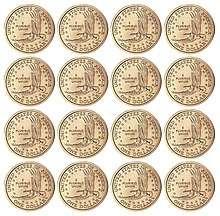TacTix
TacTix is a two-player strategy game invented by Piet Hein, a poet well known for dabbling in math and science. Players take turns to remove any number of contiguous pieces from a grid of playing pieces, alternating until the last piece is removed.

The game can be played in its misere and non-misere forms. The strategies listed here render the non-misere gameplay trivial. At the time of its founding, TacTix was played on a 6x6 board, but is now usually played on a 4x4 board.[1] TacTix is essentially a two-dimensional version of Nim.
Game play
TacTix is played on a NxN grid of squares. Players alternate removing pieces from a square (or rectangular) grid, as many contiguous pieces as desired. Players alternate doing this until the last piece removes. The player who takes the last piece loses (misère play convention). The game is often used as a programming exercise, and many versions are available on the web as Java applets.
Strategy
First Player If N Is Odd (non-misere): The player takes the center piece and symmetrically imitates every one of the opponent's moves.[1]
Second Player If N Is Even (non-misere): Player copies opponent's moves symmetrically. You will eventually take the last piece and win.[1]
Variations
The hexagonal variation of the game, played on a six by six by six board, is called TacTex. TacTix can also be played on any size NxN board. A Non Misere version of TacTix, where the player who makes the last move is the winner, is also playable.[1]
Analysis
On the 4 × 4 grid originally proposed by Hein, the second player will always win with correct play (HAKMEM item #74).
If the game is instead played with the normal play convention (player who takes the last piece wins), the second player can always win by symmetrically mirroring the first player's moves. (Or on an odd × odd size grid, the first player can win by choosing the center piece and subsequently mirroring.)
Tac Tix has 65,536 reachable positions. Out of the reachable positions, 57,156 are winning, and 8,380 are losing [2]
References
External links
- TacTix applet from thinks.net
- TacTix at Four.com
- TacTix iPhone an jPhone game available at the App Store
- TacTix at BoardGameGeek
- TacTex at BoardGameGeek
- JavaScript TacTix